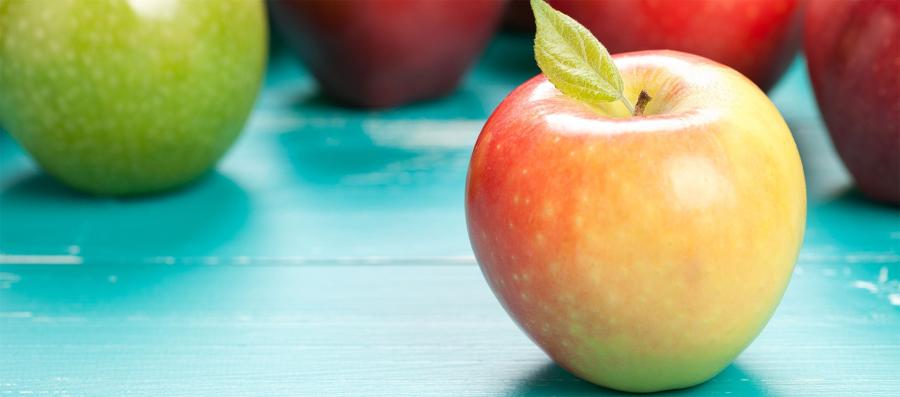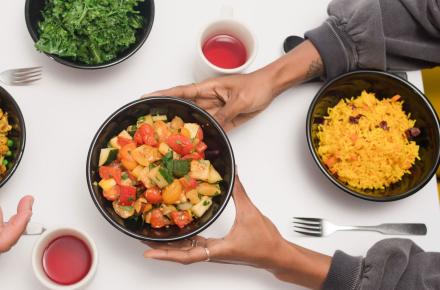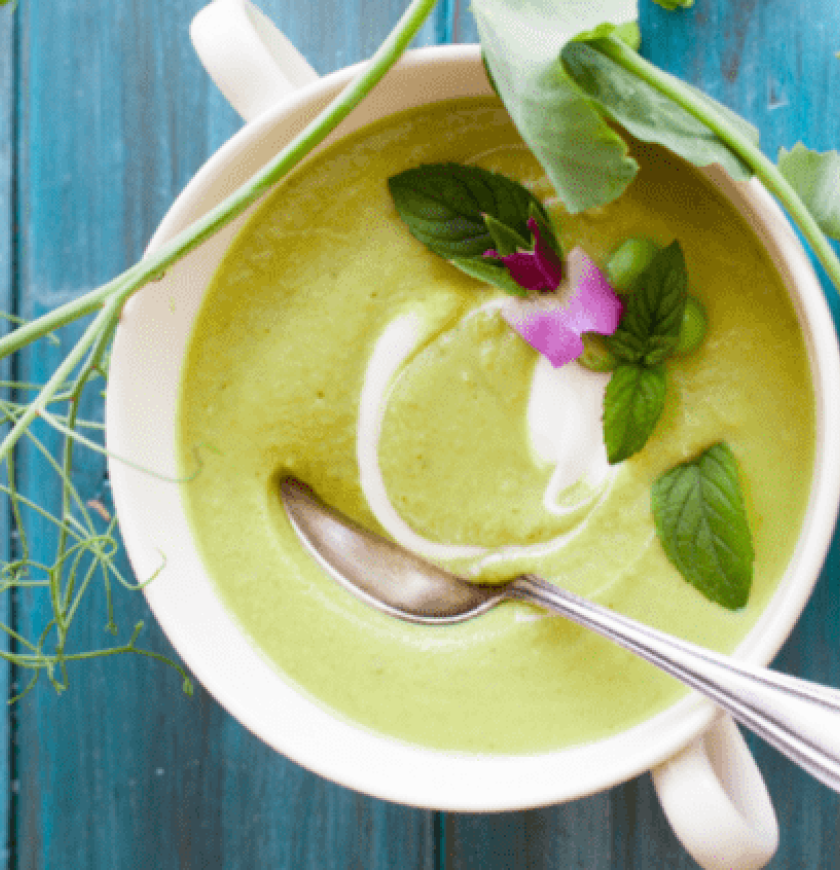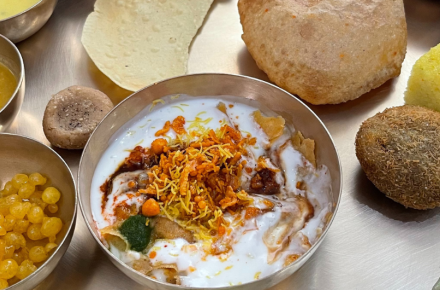Eating Your Way to Good Health

It wasn’t until I became interested in yoga that I realized that good nutrition and healthy eating habits are necessary in order to achieve a balanced lifestyle.
When I visit Kripalu, I seek out programs that can help me build a better foundation in nutrition, so I can make smarter food choices. I spent a week with nutritionist John Bagnulo, PhD, MPH, and former Kripalu Executive Chef Jeremy Rock Smith. John, who is a fan of the Paleolithic diet, broke down some popular food myths, and answered questions about which foods to eat and why. The Paleo diet argues for a return to how our ancestors ate—mainly fruits, vegetables, nuts, and seeds, with limited amounts of fish, seafood, poultry, and whole grains (such as amaranth, quinoa, and millet). This diet is both dairy-free and gluten-free.
Contrary to what most Americans think, a bowl of oatmeal in the morning (which is pure gluten, unless it’s made with gluten-free oats) is not nutrient-rich. He says a better breakfast alternative would be poached eggs with greens, a protein-packed fruit smoothie, or fruit with nuts and seeds.
Avoiding eggs because of the cholesterol? John considers poached eggs superfoods, because their yolks contain choline, which helps the liver detoxify and improves brain development in children. For those who eat eggs, he recommends preparing them in a way that keeps the lipids from being oxidized, as they are when you fry or scramble them. Instead, poach your eggs, or eat them hard- or soft-boiled.
John also explained the importance of eating foods that are alkaline, not acid-forming (like meat), to help maintain the body’s healthy pH of 7.39. Alkaline-forming foods that are least taxing to the system include
- Dark leafy green vegetables
- Fruit
- Spices and green herbs
- Root vegetables (carrots, sweet potatoes, parsnips, turnips)
- Tubers (onions, leeks, garlic)
- Winter squash (butternut, acorn, blue Hubbard, spaghetti)
- Buckwheat flour and grouts.
Nutrient-rich foods to load up on include almonds, apples, avocados, blackberries, blueberries, black mission figs, cherries, cilantro, collard greens, concord grapes, cranberries, grapefruit, kale, mustard greens, oysters, onions, papaya, pomegranate, pumpkin seeds, quinoa, rosemary, sardines, tempeh (note that it contains gluten), thyme, tumeric, walnuts, and wild salmon.
© Kripalu Center for Yoga & Health. All rights reserved. To request permission to reprint, please e-mail editor@kripalu.org.
Articles, programs, promotions, recipes, and more, delivered right to your inbox.
You May Also Like
Related Programs

Yoga for Anxiety


Reclaim Your Creativity


Spring Renewal in the Kitchen


Healing Ourselves and Our Lineage


Ignite Your Practice


Stretch with Intelligence


The Girl Who Baptized Herself


Restorative Yoga and Sound Healing

Get Our Catalog
Get a sneak peek of everything happening at Kripalu in the coming season. Sign up to get our print catalog delivered to your doorstep.
Newcomer's Guide
New to Kripalu? Explore who we are, what we offer, and begin your transformation today.



































